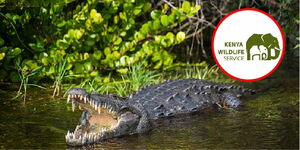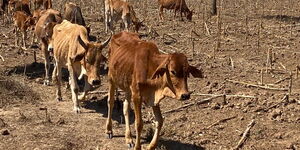Fazul Mahamed, the CEO of the Private Security Regulatory Authority (PSRA) on Wednesday unveiled new guidelines for the use of animals, particularly dogs, for security purposes.
These guidelines outlined in the Private Security (Use of Animals in Private Security Services) Regulations 2024 aim to ensure the protection of both animal and human life.
According to the regulations, all private security service providers must maintain records of the animal's name, breed, date of birth, identity marks, and characteristics.
Private security service providers must ensure that the animals undergo training and certification for security work. The security officer or guard handling the animal must also undergo appropriate training and certification.
Moreover, the providers are required to maintain health records for each animal, documenting every visit to a licensed veterinarian.
Mahamed explained the regulations outlined necessary guidelines for animal handlers including their transportation, housing, welfare and protections. These guidelines were to keep the animal healthy, sufficiently trained, safe and not in pain.
Private security service providers may also use the animals to detect and control crowds, patrol and pursue protection, and patrol demonstration parades.
Service providers, however, cannot use an animal if it has been trained to kill or seriously injure people or other animals or if it has been diagnosed with an illness of any kind.
Each animal used must be uniquely identified with an embedded ear tag and should be accompanied by a trained handler who has control over the animal.
In the case of dogs, they must be kept on a leash at all times during ground patrol.
Any private security service provider handling an animal is further required to feed, care and protect it from cruelty.
Additionally, the custodian of an animal is required to treat it with respect and dignity and will be held accountable for an act done by the animal. All custodians should also provide veterinary care to the animal.
The custodian should also not subject the animal to any form of fear, pain, stress or suffering. Each animal should be provided with an environment that is appropriate depending on the species.
Furthermore, the animals should be transported in a manner which does not cause injury, pain or anxiety. They should be transported in a vehicle that has a separate cage for each of them as approved by a certified veterinary surgeon.
"A person who contravenes this regulation commits an offence and is liable to conviction to a fine not exceeding Ksh20,000 or imprisonment for a term not exceeding three months or both," reads part of the regulations.












